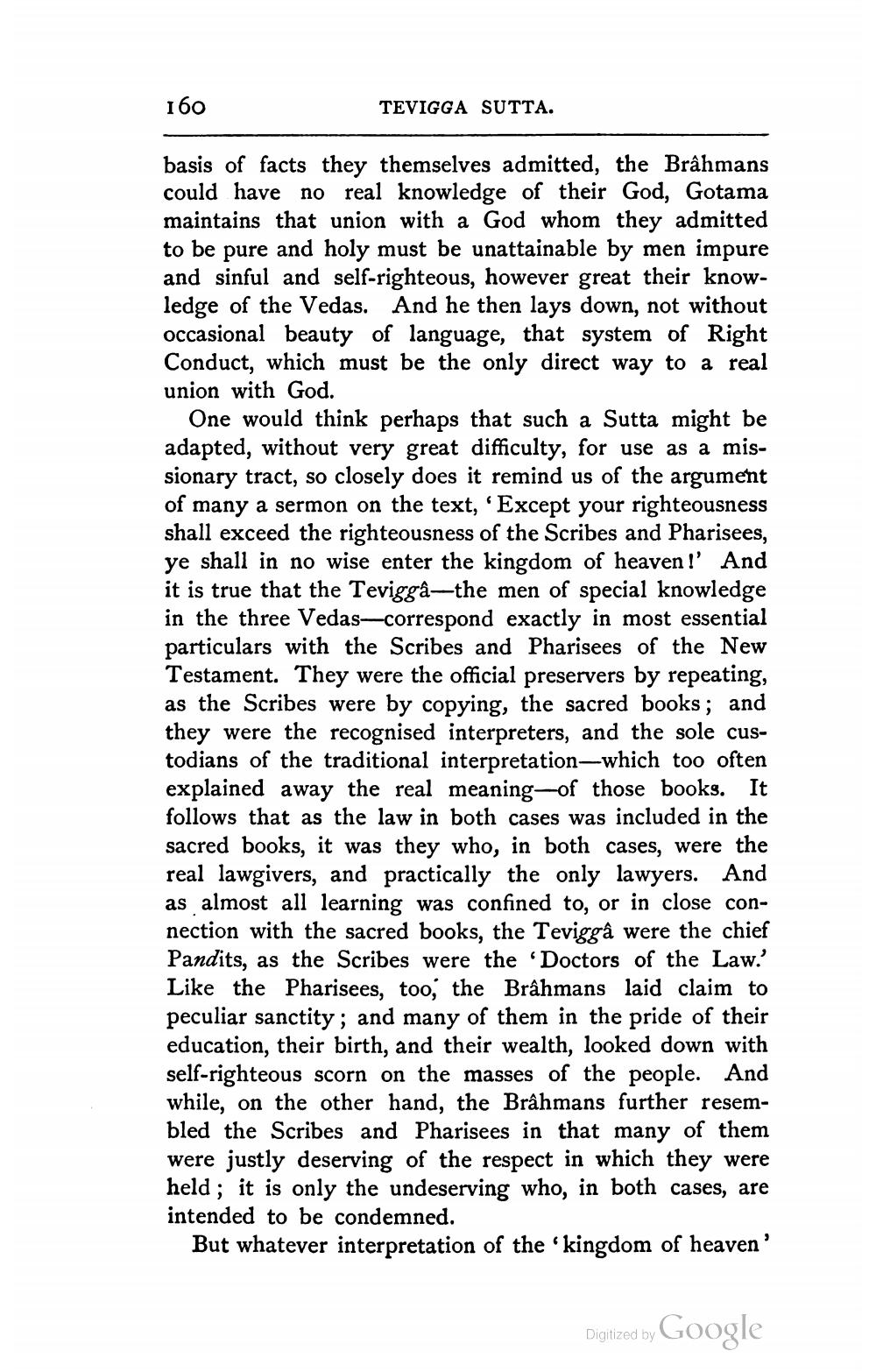________________
160
TEVIGGA SUTTA.
basis of facts they themselves admitted, the Brâhmans could have no real knowledge of their God, Gotama maintains that union with a God whom they admitted to be pure and holy must be unattainable by men impure and sinful and self-righteous, however great their knowledge of the Vedas. And he then lays down, not without occasional beauty of language, that system of Right Conduct, which must be the only direct way to a real union with God.
One would think perhaps that such a Sutta might be adapted, without very great difficulty, for use as a missionary tract, so closely does it remind us of the argument of many a sermon on the text, 'Except your righteousness shall exceed the righteousness of the Scribes and Pharisees, ye shall in no wise enter the kingdom of heaven!' And it is true that the Teviggâ—the men of special knowledge in the three Vedas-correspond exactly in most essential particulars with the Scribes and Pharisees of the New Testament. They were the official preservers by repeating, as the Scribes were by copying, the sacred books; and they were the recognised interpreters, and the sole custodians of the traditional interpretation-which too often explained away the real meaning of those books. It follows that as the law in both cases was included in the sacred books, it was they who, in both cases, were the real lawgivers, and practically the only lawyers. And as almost all learning was confined to, or in close connection with the sacred books, the Teviggâ were the chief Pandits, as the Scribes were the Doctors of the Law. Like the Pharisees, too, the Brâhmans laid claim to peculiar sanctity; and many of them in the pride of their education, their birth, and their wealth, looked down with self-righteous scorn on the masses of the people. And while, on the other hand, the Brâhmans further resembled the Scribes and Pharisees in that many of them were justly deserving of the respect in which they were held; it is only the undeserving who, in both cases, are intended to be condemned.
But whatever interpretation of the 'kingdom of heaven'
Digitized by Google




